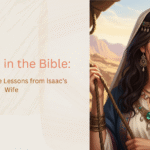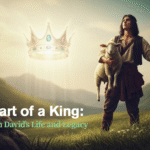In the tapestry of the Bible, parables stand as vibrant threads that weave intricate lessons into the fabric of human understanding. These timeless stories, masterfully woven by Jesus Christ, hold insights that transcend time and culture, inviting us to explore the depths of spiritual wisdom and truths. Let’s journey through some of these parables and uncover the profound lessons they offer.
* The Parable of the Sower: Cultivating a Receptive Heart (Matthew 13:1–23)
“A farmer went out to sow his seed…” (Matthew 13:3)
This parable illustrates the importance of cultivating a receptive heart to receive the message of God’s Word. Just as different soils yielded varying results, our hearts can be hardened, shallow, distracted, or open. The lesson here is to nurture a heart that eagerly embraces and nourishes the Word of God, leading to spiritual growth and fruitful living.
* The Prodigal Son: Embracing Unconditional Love (Luke 15:11–32)
“There was a man who had two sons…” (Luke 15:11)
The Prodigal Son parable speaks of a father’s unwavering love and forgiveness. It reminds us that no matter how far we may have strayed, God’s love is always ready to welcome us back with open arms. The lesson is to recognize the depth of God’s unconditional love and the possibility of redemption and renewal.
* The Good Samaritan: Compassion in Action (Luke 10:25-37)
“A man was going down from Jerusalem to Jericho…” (Luke 10:30)
Through the Good Samaritan parable, Jesus teaches the essence of genuine compassion. The Samaritan’s actions transcend societal divisions, emphasizing that loving our neighbor means extending help and kindness regardless of differences. The lesson here is to embody compassion through tangible acts of love.
* The Parable of the Mustard Seed: Power in Small Beginnings (Matthew 13:31-32)
“The kingdom of heaven is like a mustard seed…” (Matthew 13:31)
This parable uses the analogy of a tiny mustard seed growing into a large tree to illustrate the potential of the Kingdom of God. It encourages us to recognize that even small acts of faith and service can lead to significant impact when nurtured by God’s hand. The lesson is to value the potential within seemingly insignificant beginnings.
* The Parable of the Lost Sheep: God’s Pursuit of the Lost (Luke 15:3–7)
“Suppose one of you has a hundred sheep and loses one of them…” (Luke 15:4)
In this parable, Jesus portrays God’s relentless pursuit of those who have gone astray. It conveys the depth of God’s love and His desire to rescue and restore. The lesson here is to understand the lengths to which God goes to seek and save the lost, prompting us to share in His heart for reconciliation.
* The Parable of the Wise and Foolish Builders: Building on a Solid Foundation (Matthew 7:24–27)
“Therefore everyone who hears these words of mine and puts them into practice is like a wise man who built his house on the rock…” (Matthew 7:24)
This parable contrasts the outcomes of building on a solid foundation versus a shaky one. It emphasizes the importance of not only hearing God’s Word but also living it out. The lesson here is to build our lives upon the unchanging truths of God’s Word, ensuring a firm and lasting foundation.
* The Parable of the Talents: Stewardship and Faithfulness (Matthew 25:14–30)
“Again, it will be like a man going on a journey…” (Matthew 25:14)
This parable speaks to the responsibility of stewarding the resources and gifts entrusted to us. It underscores the value of faithfulness and diligence in using what we’ve been given for God’s purposes. The lesson is to invest our talents and resources wisely, recognizing that they are given to us for a greater purpose.
* The Parable of the Good Shepherd: The Shepherd’s Care (John 10: 1-21)
“I am the good shepherd; I know my sheep and my sheep know me…” (John 10:14)
Through the image of the Good Shepherd, Jesus conveys His deep care and protection for His followers. The parable reflects the intimate relationship between the Shepherd and His sheep. The lesson here is to entrust ourselves to the loving care of Jesus, our Good Shepherd, who leads us with compassion and wisdom.
* The Parable of the Unforgiving Servant: Extending Forgiveness (Matthew 18:21-35)
“Then Peter came to Jesus and asked, ‘Lord, how many times shall I forgive my brother or sister who sins against me?'” (Matthew 18:21)
This parable underscores the significance of forgiveness. It highlights the hypocrisy of receiving mercy from God while withholding it from others. The lesson is to extend the same grace and forgiveness we’ve received from God to those around us.
* The Parable of the Ten Virgins: Preparedness and Readiness (Matthew 25:1–13)
“At that time the kingdom of heaven will be like ten virgins…” (Matthew 25:1)
Through the story of the ten virgins, Jesus emphasizes the importance of being prepared for His return. The parable teaches the value of spiritual readiness and the need to cultivate an enduring relationship with God. The lesson is to live in anticipation of Christ’s return, maintaining an active and vibrant faith.
In the treasury of parables, we unearth profound insights that illuminate the path of faith, compassion, and transformation. These stories beckon us to reflect on our lives, encouraging us to embrace the teachings of Christ with open hearts. As we heed the lessons of these parables, may our lives be enriched and our spirits renewed, as we journey toward deeper understanding and connection with God.
Subscribe for Daily Email Devotionals










